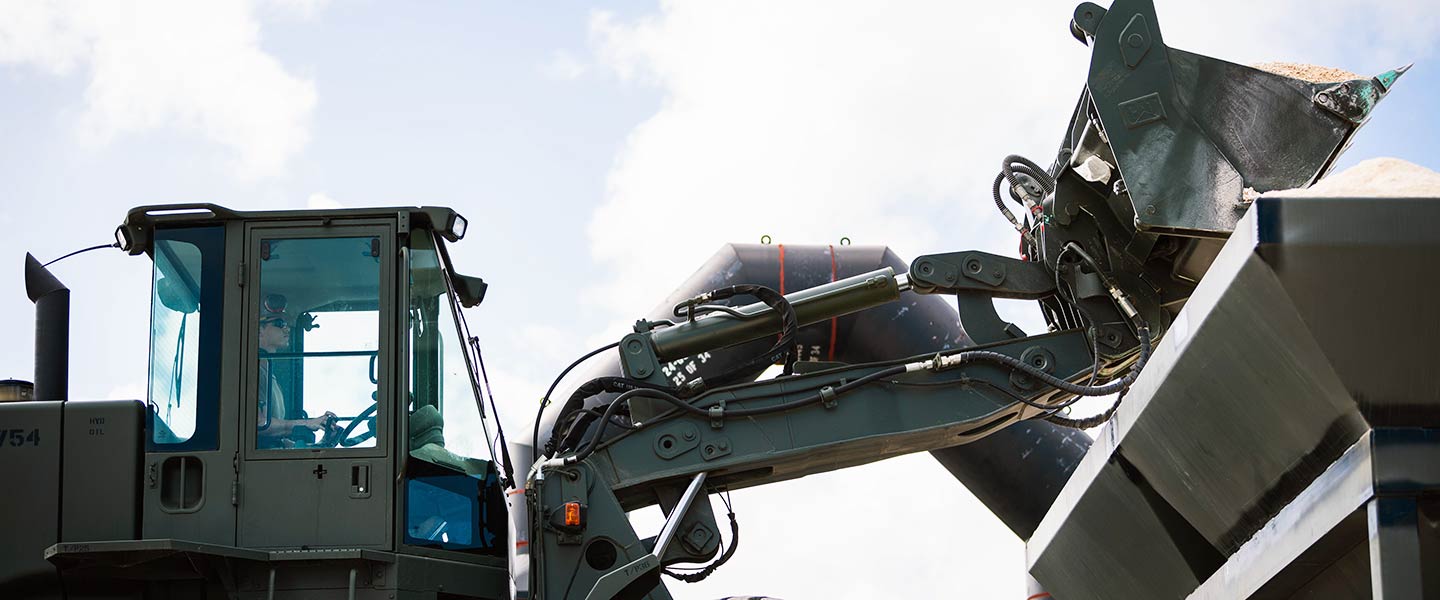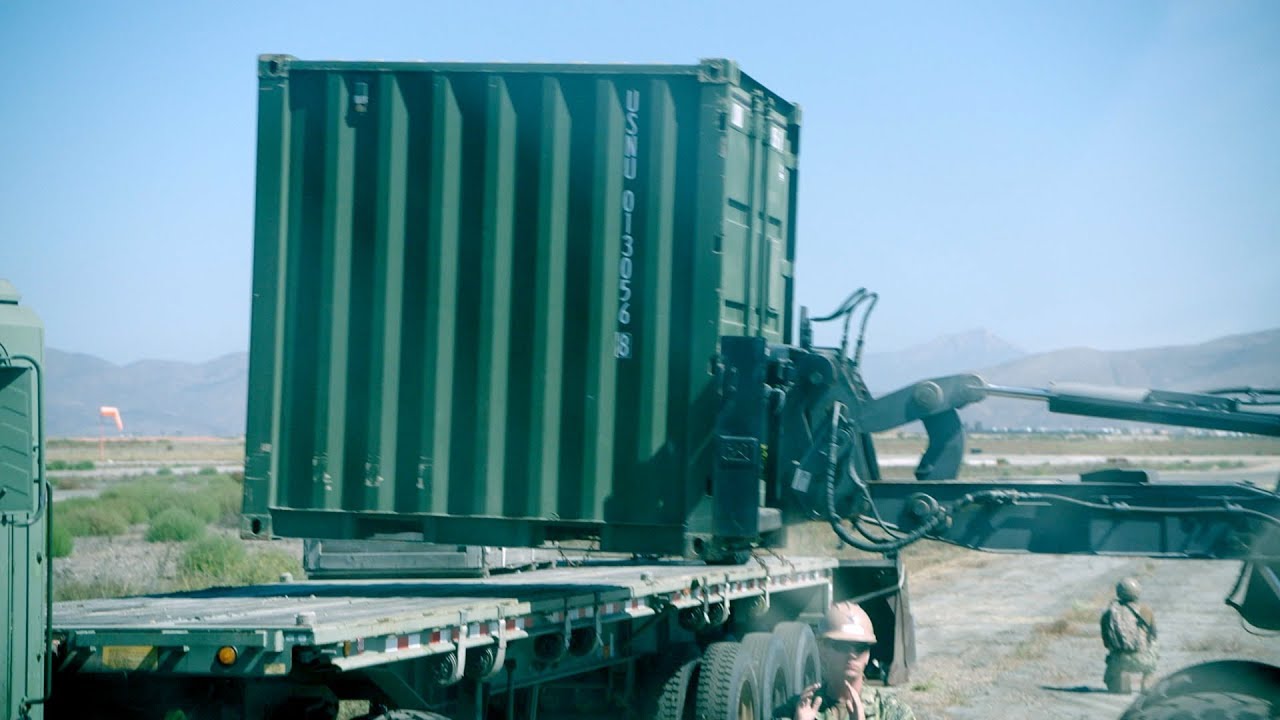What to Expect
More Information
Responsibilities
Equipment Operators operate heavy transportation and construction equipment across a wide range of project types. Equipment could include trucks, bulldozers, backhoes, graders, forklifts, cranes and asphalt equipment. Your job responsibilities could include:
- Operating a variety of heavy-duty, self-propelled equipment for the construction of buildings, roadways, piers, grading and excavation
- Performing minor maintenance on equipment to ensure safe, efficient operation
- Serving on a crane crew to rig cable assemblies and change attachments for various lifting and pile-driving operations
- Preparing operational reports on equipment
- Operating rock crushing and well-drilling equipment
- Working as blasters for construction projects
- Reading and interpreting blueprints and preparing sketches for projects
- Making estimates of material, labor and equipment requirements
- Performing tasks required in combat and disaster preparedness or recovery operations
- Assisting with disaster relief operations and building makeshift hospitals
Work Environment
As an Equipment Operator, you’ll construct and repair a variety of structures in just about every environment imaginable. You may work at Navy bases or ports of call around the globe, and you may be deployed to help develop or rebuild areas affected by natural disasters or support combat operations. Seabees primarily serve at shore-based commands—you will likely not spend time at sea.
Training & Advancement
Upon completion of initial training at Recruit Training Command Great Lakes (known as Boot Camp), those pursuing an Equipment Operator role report to Class “A” Technical School at Fort Leonard Wood, MO, for 11 weeks. Here, you will develop a working knowledge of basic construction skills and theories required for work as an Equipment Operator.
After you’ve completed your schooling, you’ll be assigned to a Naval Mobile (NMCB) or Amphibious Construction Battalion (ACB), and may rotate between homeport and overseas locations, where additional training may be provided.
Promotion opportunities are regularly available but competitive and based on performance. Advanced technical and operational training in the construction field may also be available during later stages of your career.
Post-Service Opportunities
Specialized training received and work experience gained in the course of service can lead to valuable credentialing and occupational opportunities in related fields in the civilian world.
Education Opportunities
Beyond offering access to professional credentials and certifications, Navy technical and operational training in the field of construction can translate to credit hours toward a bachelor’s or associate degree through the American Council on Education.
You may also continue your education through undergraduate degree opportunities like the Navy College Program and Tuition Assistance and the Post-9/11 GI Bill.
Qualifications & Requirements
A high-school diploma or equivalent is required to become an Enlisted Sailor and an Equipment Operator. Those seeking a position with the Seabees must be U.S. citizens.
Equipment Operators should be able to use tools, equipment and machines and have good use of your hands. Other important qualifications include good knowledge of algebra and arithmetic, good speaking and writing skills, and the ability to keep records, do detailed work and perform well as part of a team. You must possess a valid driver’s license.
Important personal traits for Equipment Operators include resourcefulness curiosity. You should be in good physical condition. Normal color perception with stereoscopic vision and normal hearing are required.
General qualifications may vary depending upon whether you’re currently serving, whether you’ve served before or whether you’ve never served before.
Part-Time Opportunities
Serving part-time as a Navy Reserve Sailor, your duties will be carried out during your scheduled drilling and training periods. During monthly drilling, Equipment Operators in the Navy Reserve typically work at a location close to their homes.
For annual training, you may serve anywhere in the world, including locations in the U.S., at bases overseas, or in areas where humanitarian needs are great.
Take a moment to learn more about the general roles and responsibilities of Navy Reserve Sailors.
Most of what you do in the Navy Reserve is considered training. The basic Navy Reserve commitment involves training a minimum of one weekend a month (referred to as drilling) and two weeks a year (referred to as Annual Training) – or the equivalent of that.
Seabees in the Navy Reserve serve in an Enlisted role. Before receiving the ongoing professional training that comes with the job, initial training requirements must be met.
For current or former military Enlisted servicemembers, prior experience satisfies the initial Recruit Training requirement, so you will not need to go through Boot Camp again.
For those without prior military experience: you will need to meet the initial Recruit Training requirement by attending Boot Camp in Great Lakes, IL. This training course will prepare you for service in the Navy Reserve and count as your first Annual Training.

































































































































